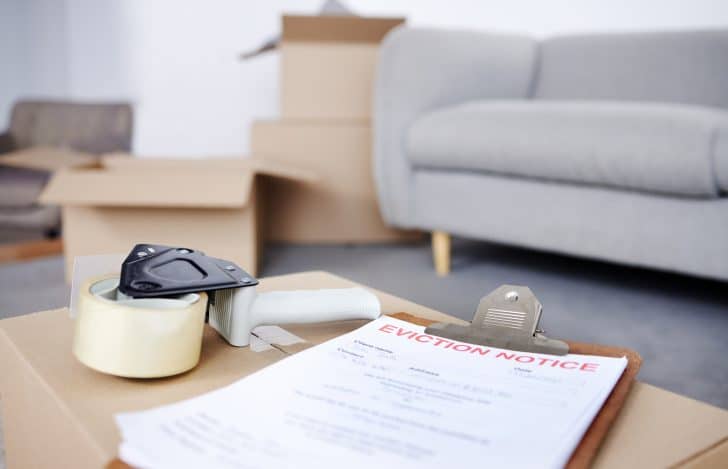Dealing with Security Deposits

09Mar
Dealing with Security Deposits
We all know the security deposit. You move into an apartment and you plop down a large chunk of change. Your landlord wants to ensure that they can hold you accountable for any damage you do to the property without having to chase you down for it.
The problem is, some of the less honest landlords out there may make you chase them down to get your deposit back, or will withhold a portion of your deposit for what seems like a bogus reason.
The Law
In California a landlord is only able to demand a security deposit of up to two months’ rent. The rules regarding deposits are covered by state law. Landlords cannot require a non-refundable deposit, and your landlord is required to return your deposit or otherwise account for how it was spent within 21 days of vacating the unit.
How can your security deposit be used?
Your landlord can only charge you for damage to your unit beyond ordinary wear and tear. What is ordinary wear and tear? If you caused the damage with a bat, a ball, or a golf club, it’s probably not “ordinary.” Put another way, it boils down to those things that are inevitable – paint won’t stay fresh for ever, carpets wear out, etc. etc. Sometimes landlords can be sneaky about this and try to charge you for a new carpet or to replace old appliances. As a general rule you are not responsible for these expenses unless you caused the damage.
Procedure for Returning Your Deposit
Your landlord has to provide you with accounting for any deductions from a tenant's security deposit. That means they are required to send you receipts for replacement items and/or invoices for services they had to pay for. If your landlord does not provide documentation, write them demanding to see proof. If your landlord refuses or ignores you, you can use this as proof of bad intent later. Likewise, if your landlord submits a receipt/invoice that looks outrageous - $500 for a new towel rack? You should consider asking for an explanation in writing.
As I’ve stated before, putting things in writing isn’t just about getting your landlord to comply – it’s about creating a paper trail and memorializing your state of mind at a given time in the off chance you have to fight them through legal channels later on.
Getting your full security deposit back
When you move in make sure you carefully inspect the unit you are moving into with the landlord or a reliable witness and make sure that you point out any/all existing defects to your landlord. A lot of landlords use a checklist. Ask for a copy and hold onto it so you can check against it when you move out. You should also ask for a receipt for any you deposited, and/or make sure your lease reflects the deposit amount.
When you give your termination notice request a walk through with your landlord in writing. If your landlord refuses, write another letter. You can potentially use these letters and this fact against them later as evidence that they did not give you a chance to cure the problems.
Assuming you have an inspection, get definitive statements from your landlord about any issues that exist so they can’t later claim there were other issues. Ideally you schedule the inspection so that you have time to correct any existing issues before you have to be out the door. Otherwise make sure your landlord gives you an itemized statement of deductions he wants to make from your deposit if you are leaving the unit in its current condition. If you decide to do repairs before you move out, carefully document them, as the landlord cannot legally deduct them. Taking photos is also helpful.
Obviously the best scenario is to exchange the keys for the full security deposit on the date you move out. But as stated above your landlord is not legally required to pay the deposit at the time of the move.
What can you do if you do not get your security deposit back?
If your landlord fails or refuses to return all or part of your deposit, and/or to provide an itemized statement and proofs for any deductions, I always recommend writing them a letter asking for an explanation before escalating the situation on the off chance they forgot or sent it somewhere else. This will make you look more reasonable in the eyes of a Court if you have to go after them. If you still don’t get it back, or if you disagree with the accounting, your best option is generally to file an action in Small Claims Court. In addition to the disputed money, your landlord may be liable for penalties for improperly withholding your funds. Because most deposits are less than $10,000 Small Claims court is your ticket. Small Claims does not involve lawyers, and instead is just between the parties (think Judge Joe Brown). This means fewer expenses for you, and a faster resolution. It also means that it rarely makes sense to hire an attorney to try and recover the money for you, because at the end of the day your best recourse is Small Claims. This is where that documentation can be really helpful.
Ultimately getting your money back once it’s in your landlord’s hands can be a challenge. But with these tips, hopefully you will be better equipped to get that money back.
**This post was originally published on the website BrokeAss Stuart: http://brokeassstuart.com/blog/2016/03/07/how-to-get-your-security-deposit-back-from-your-landlord/
Related Posts You Also May Like
Get Started
For more information or to discuss your legal situation, call us today at (415) 649-6203 for a phone consultation or submit an inquiry below. Please note our firm can only assist tenants residing in San Francisco, Oakland & Berkeley.





